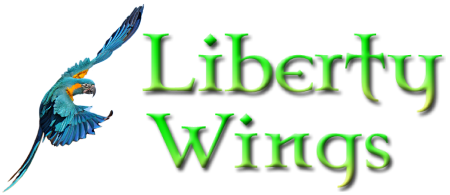The nature vs. nurture debate relates to the relative importance of an individual’s genetic “innate qualities” (nature) as compared to an individual’s personal experiences (nurture) in causing individual differences in physical and behavioral traits. From an animal trainers perspective the nature vs. nurture debate is heavily influenced by B.F. Skinner’s belief that the brain was essentially an empty box, also known as tabula rasa, meaning “blank slate” in Latin and originates from the Roman tabula. Skinner believed that in the epistemological theory that individuals are born without built-in mental content and that all of their knowledge comes from experience and perception.
- Human intellect at birth resembled a tabula rasa, a pure potentiality that is actualized through education and comes to know. Persian philosopher. Ibn Sina
- At birth the (human) mind is a “blank slate” without rules for processing data, and that data is added and rules for processing are formed solely by one’s sensory experiences. John Locke
Obviously, the tabula rasa perspective favors the “nurture” side of the nature vs. nurture debate, when it comes to aspects of one’s personality, social and emotional behavior, and intelligence.
In the past 20 years or so neuroscience has settled this decades old debate about which has more influence over who you will become, nature vs. nurture, genetics vs. environment. Turns out neither dominate, it takes a proper blending of both, meaning not only are the genetics influential and the interactions with the environment you grow up in, but also the very process these gene and environment interactions occur also matters, making it three things that influence who you will become. So asking which is more important, nature or nurture is like asking which is more important, the tires on the left side of car or the tires on the right side of your car?
Instincts are not behaviors. Instincts are influences that help cause behaviors. Instincts are tendencies, internal pressures if you like, that help shape behaviors. These tendencies are passed along from one generation to the next via differential reproduction, i.e. those traits that improve survival and reproduction are passed on by the individuals who better survived and better reproduced due to these beneficial traits; those with other traits less beneficial to survival and reproduction did not pass along their traits as successfully.
But this is not the end of the story of instinctive behaviors. Because instincts are not behaviors but instead help cause behaviors, this means instinctive behaviors go through a period of plasticity, i.e. are adaptable in response to the organisms interactions with the environment.
Early childhood has HUGE impact on who the animal ends up becoming, both physically and mentally. Raise lizards on smaller branches and they end up with shorter legs. The entire system of the body is designed to be adaptable to the conditions the animal is born into. It could be born high in the Andes Mountains were it snows, or it could be born down by the beach where it never snows. Same genetics, very different environments with different vegetation, different predators, etc. Without this plasticity the animal would survive well only if it was born into locations that specifically match its instinctive tendencies. This flexibility to thrive within a wide variety of locations is also supported by other systems that allow them to adapt their instinctive behaviors to match the current conditions they live in as adults.
Though there are limits to this adaptive plasticity. Some behaviors, known as experience dependent behaviors, require certain experiences and without these experiences the physical trait or behavior will not develop. Think pushups result in bigger muscles. Don’t do the exercises, you won’t get the bigger muscles. Without scary experiences parrots will not develop defensive flocking or defensive perching behaviors. These behaviors can develop at any time in the animals life.
Similarly experience expectant behaviors also require certain experiences but at very specific times or stages of development. Cover a kittens eye for the wrong 14 days and the eye will become functionally blind for the entire life, cover it for the wrong 7 days and stereo vision and depth perception are lost for life.
So there are limits to how much instinctive behaviors can be adapted based on learning. If the learning does not occur within the correct time frame there may be no recovery of that trait. Most instinctive behaviors are experience dependent and thus can be altered throughout the animals life. Though alteration of such instinctive behaviors as an adult is much much harder than altering them while they are first being formed.
And lastly there is the epigenetic influence over instinctive behaviors. When you have intense experiences you may alter the way certain of your genes are expressed, i.e. are turned on or turned off. This can also be passed on to your children and even grandchildren. This means the intense experiences of your parents or grandparents may have altered who you are today.
So today we know that instinctive behaviors are passed on from one generation to the next but they are also heavily influenced through interactions with the environment. Thus ending the debate over nature vs. nurture. The answer is neither or both. Like asking which is more important the tires on the left side of your car or the tires on the right. You equally need both.
© Copyright 2019 Chris Biro

Article Comments